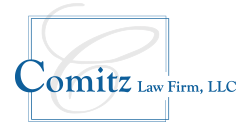 Amassing assets requires hard work. Preserving your estate and protecting your family can be an arduous task. It is best undertaken using an estate plan. In creating an estate plan, a number of questions may arise.
Amassing assets requires hard work. Preserving your estate and protecting your family can be an arduous task. It is best undertaken using an estate plan. In creating an estate plan, a number of questions may arise.
Does a will in Pennsylvania need to be witnessed?
What steps can you take to avoid costly and time-consuming probate?
Should you grant the nominated guardian the authority to make all decisions necessary for the personal well-being of the individual, or should the power be limited to what is specifically set forth in the court’s decree?
Is a springing power of attorney the same as a durable power of attorney?
Can the authority that a power of attorney gives to your agent be limited to specific situations?
Is there a way for you to transfer income-producing assets into a trust then reclaim them when the trust expires?
What is the best way to protect trust property from a financially irresponsible beneficiary and the beneficiary’s creditors?
What’s the difference between a living will and a health care power of attorney?
What are the legal requirements for a valid living will?
What type of medical preferences can you include in a living will?
Who can serve as an agent under a health care power of attorney?
Can a health care agent hire and fire medical personnel responsible for your care?
What characteristics should you look for when choosing an executor?
Is an executor personally responsible for an estate’s debts?
Objectives of an Estate Plan
An estate plan can be designed to meet a number of goals, including:
- protecting assets
- providing for loved ones
- mitigating or avoiding probate
- minimizing taxes
- providing for orderly stewardship of property
- providing for incapacity
Components of an Estate Plan


